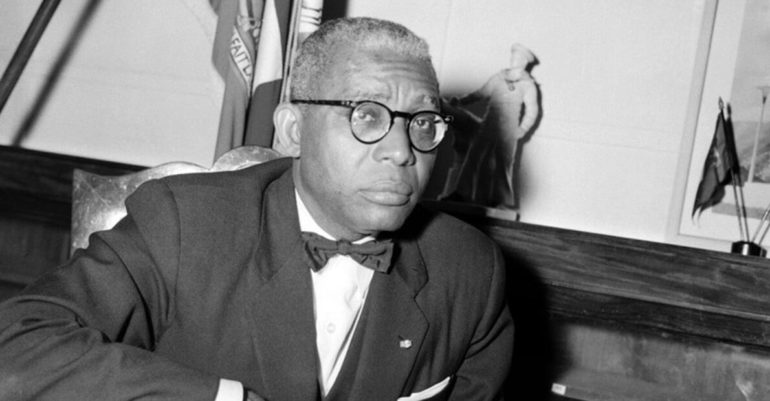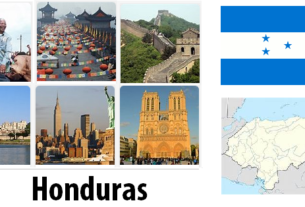1800s
Only after independence in 1804 is there a national literature in Haiti. To begin with, it was especially about a patriotic literature that emphasized Haiti’s leadership role among the countries that fought against slavery and colonization and which attacked contemporary racial theories. This tradition can be traced back to Le Système colonial dévoilé (1814) by Baron de Vestay. A number of important writings on this subject came towards the end of the century, such as Louis-Joseph Janvier’s L’Egalité des races (1884) Anténor Firmins De l’Égalité des race humaines (1885) and the Hannibal Prices De la Rehabilitation de la race noire(1900). Otherwise, literature in Haiti in the 19th century largely followed the French currents (see France, literature). Towards the end of the century, several writers emerged who dealt with local problems in a style rich in realistic details. The most famous representatives of this direction are Alcibiade Fleury Battier (1841–83), Frédérique Marcelin (1848–1917) and Antoine Innocent (1874–1960).
1900-1950
The American occupation of Haiti (1915–34) gave new relevance to the question of what cultural belonging the country should have. “White” (French / American) and “black” (African) civilization had already been linked in various ways. The national religion voodoo has elements from both Catholicism and from African religions, and the language that the majority of the population speaks, Creole, has features both from French and from African languages. However, this fusion of cultures did not take place without struggle, and there has always been a clear tendency to favor the white part of the culture. The so-called indigenism (“native”), oneliterary flow in the early 1900s, fought against this tendency and wanted to create a common cultural identity for all nations and “races” in America. The two leading representatives of this direction were Jean Price-Mars and Jacques Roumain. The most well-known of Price-Mars’s works is Ainsi parla l’oncle (1928), a defense of Haiti’s folk traditions, which has had a great influence on later writers. Roumain had a more explicit political aim with his poetry. He founded Haiti’s Communist Party in 1934 and emphasized in particular how important it was for the oppressed to show solidarity with each other (the poetry collectionBois d’ébène, 1938, and the peasant novel Gouverneurs de la rosée, posthumously 1946). Jacques Stephen Alexis was strongly inspired by Roumain and wanted to create an authentic Haitian novel ( Compère général soleil, 1955). His program paper Réalisme merveilleux (1956) had a great influence on literature throughout the region.
Literature after 1950
Literature after 1950 has been strongly influenced by political conditions, both by the Duvalier family dictatorship in Haiti and by the Third World struggle for political and cultural independence. As a writer, François Duvalier sought to exert an intellectual dictatorship next to the political ( Œuvres essentielles, 1966). A number of Haiti’s foremost writers have lived in exile for short or long periods for political reasons. Lyricists such as René Depestre, Magloire Saint-Aude (1912–71) and Villard Denis (b. 1940) were influenced by surrealism and other avant-garde currents. Based on these directions, they wanted to create a distinctive, non-European form of expression. The political and socialCommitment is prominent in prose writers such as Anthony Phelps and Roger Dorsinville. Several female writers also appeared, including Marie Chauvet and Marie-Thérèse Colimon.
From ancient times, the theater is a popular genre in Haiti. The most famous playwrightfrom the 1980s is Gérard Chenet (b. 1927). In recent decades, several writers have written texts in different genres in Creole, to make this a full national language. The most notable among them is Frankétienne (Franck Etienne). A novelist and lyricist like Jean Métellus is rooted in both the national and the heritage of French culture. In the 1970s and 1980s literary life seemed to be partly down because of the major political and social crises that characterized the country. But in recent decades, a new generation of writers has emerged, characterized by social commitment and a strong desire to renew literary forms of expression. These include Lyonel Trouillot, Gary Victor, Joel Des Rosiers, Louis-Philippe Dalembert and Edwige Danticat. Because of the natural disasters and political conditions in the country, many of today’s writers have chosen to live abroad. They live in Europe, the United States and especially in the French parts of Canada. This gives Haiti’s latest literature a strong cosmopolitan feel.




